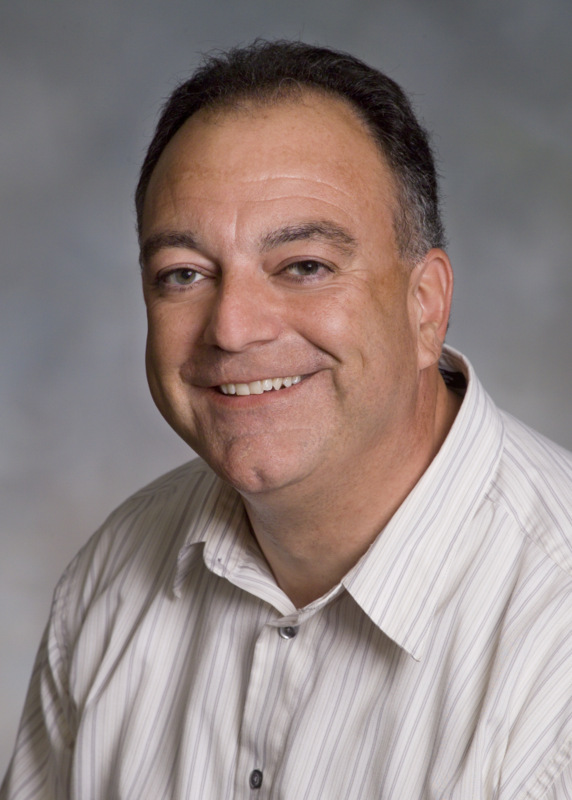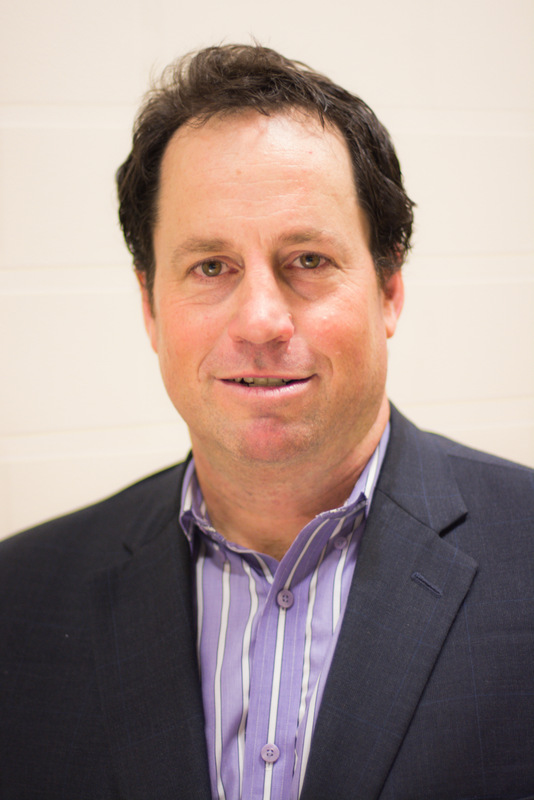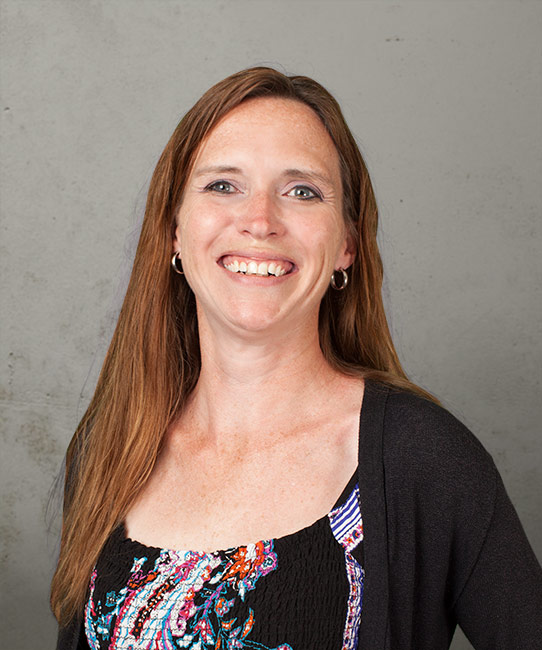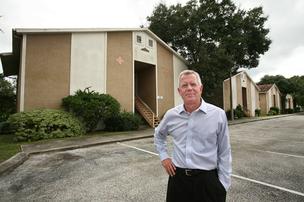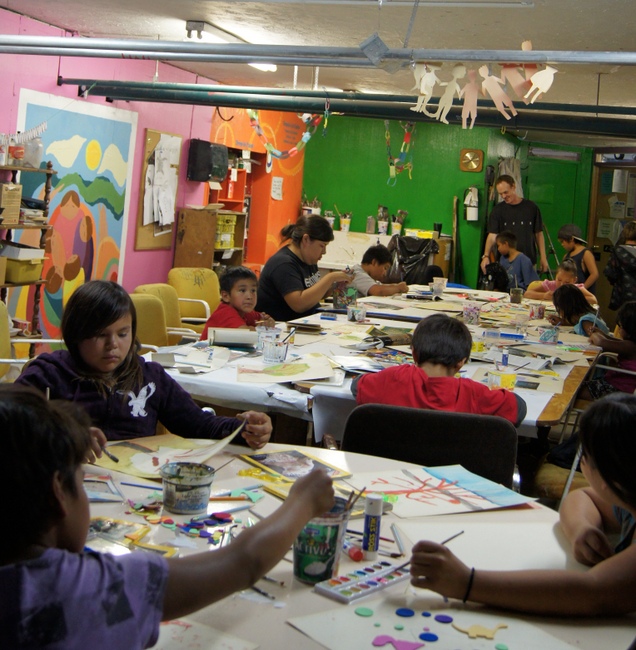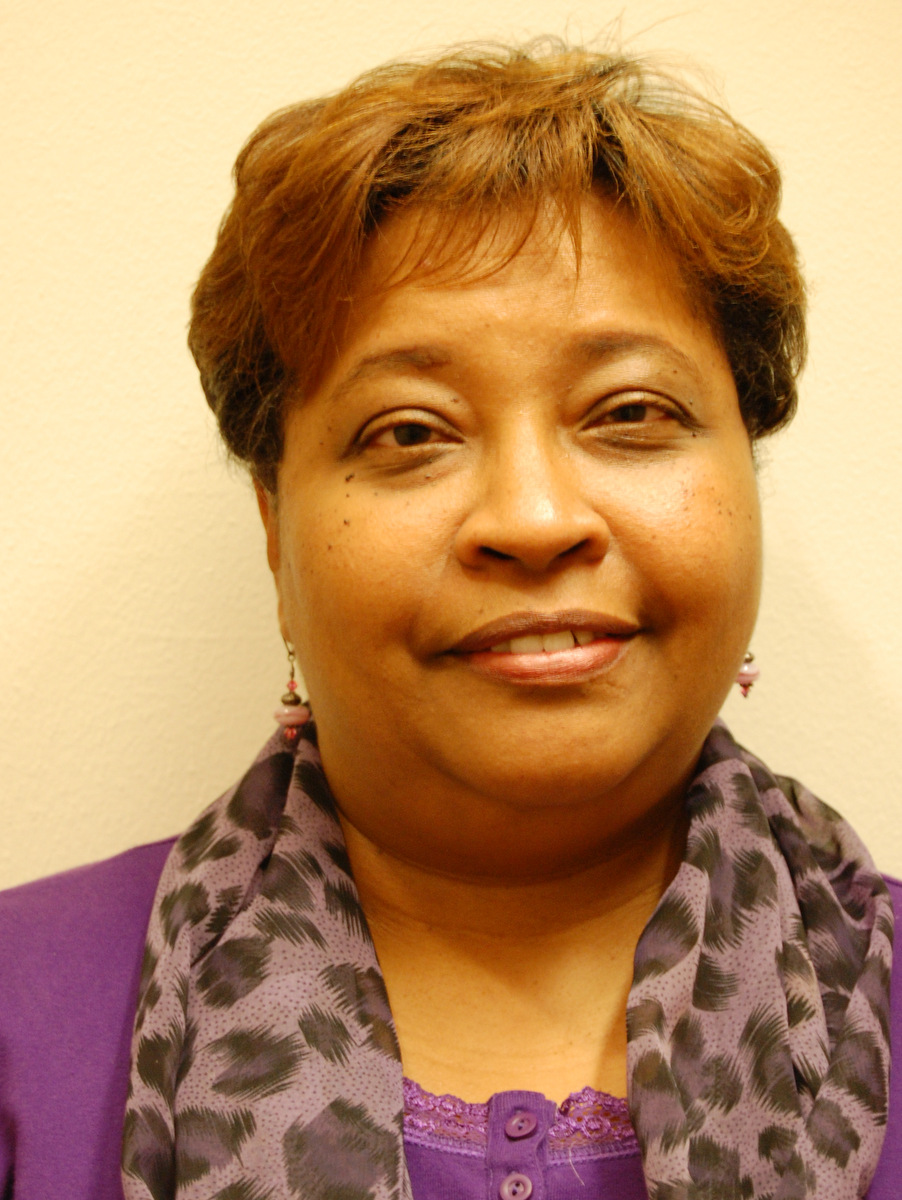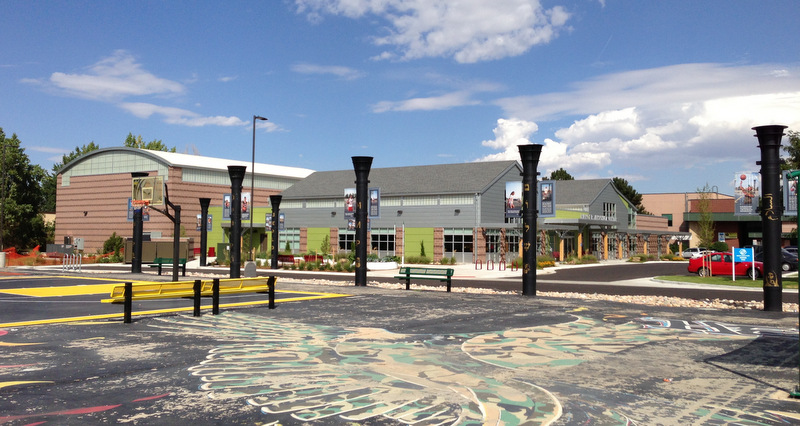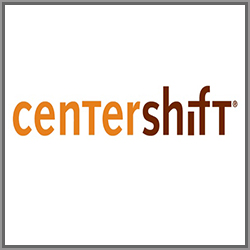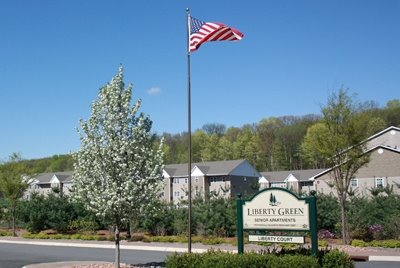Candlelight Ranch provides nature-based camps for children with special needs. By customizing experiences to accommodate each group, children receive the care that they deserve as well as the challenges and opportunities that they crave. Public Relations and Marketing Chair, Adrienne Hagler, has served Candlelight Ranch for four years. The joy of working with a nonprofit was the supplement she needed in the routine of her everyday life. “To feel good when you wake up every day makes a difference,” says Hagler. “It’s not just happiness in your own life but in many lives, the majority of those who are children, some who have special needs and some who are at risk. It feels good be involved in something that promotes development and wellness in a natural environment.” Personal development and wellness is a focal point for Candlelight Ranch. Camp programs foster a sense of independence, self-confidence, and exploration. “A lot of kids who have special needs don’t serve their own plates at breakfast or wash up on their own or brush their own teeth,” begins Hagler. “A day at camp at Candlelight Ranch, these kids are encouraged to do it on their own.” Activities start first thing in the morning: outdoor excursions, soaring over the canyon on zip lines, hiking down to fresh water springs, or testing their bravery on a suspended ropes course. All activities are made accessible for participants. An all-terrain wheelchair offers kids the opportunity to tackle rugged terrain with their peers. Even the tree house is wheelchair accessible, providing a rare opportunity for kids with mobility issues to fulfill a typical childhood dream. Each activity instills self-confidence and opens a world of possibilities for the children. While the physical activities strengthen their bodies and their sense of personal accomplishment, Candlelight Ranch’s...
Trade Street Residential...
Mid-sized Market Trends
2014 has experienced notable growth in mid-sized markets with an expected rent growth of 3-5 percent by year’s end. Yardi client, Trade Street Residential, has capitalized on this market, flourishing in developing markets throughout the southern United States. To achieve its success, the company became proactive about its new wave of renters and their metropolitan aestheticism. Though renters in mid-sized markets are traditionally “more sleepy” and less demanding, Caren Cohen, Director of Accounting, has noticed a shift in renter expectations. Suburban and rural Millennials aren’t respecters of city limits. Their tastes have become just as sophisticated as their urban neighbors. “Some of the young renters expect the same as they do in an urban environment. So we, depending on our location, have to cater accordingly,” says Cohen. Accommodating suburban renters with rural tastes is a two-step process. Trade Street Residential improved operations at community clubhouses to include more activities and nicer amenities. Additionally, onsite personnel reexamined their event calendars, hosting engaging events for tenants and finding new ways to promote resident retention. Talison Row in the Charleston suburbs is a prime example of the company’s approach. Modeled after luxury resorts, the community promotes a fun atmosphere with engaging entertainment. Talison Row offers both indoor and outdoor entertainment spaces: the outdoor space is the uncontested favorite, providing the backdrop of the community’s summer cooking classes, fall Oyster Roasts, and residents’ private parties. The indoor game room is often the venue for wine tastings, cigar and bourbon tastings, and themed parties where residents can explore international cuisine. To enhance the metropolitan appeal, Talison Row offers services such as valet dry cleaning delivery and pick-up. Residents don’t have to worry about gym memberships, either. The community fitness center offers the same equipment as larger gyms in addition...
Reece Crossings
Military Living from Corvias
Yardi client Corvias Military Living, an affiliate of the Corvias Group, has opened Reece Crossings, the Army’s first-ever on-post apartments for junior unaccompanied service members in Fort Meade, Md. Reece Crossings consists of 432 apartments and will house 1,000 junior unaccompanied service members, allowing them to live on the installation, closer to their work and support systems, for the first time. “It’s the first of it’s kind and our vision of what barracks privatization could be and should be for the single solider and service member,” Mike Steiner, Corvias Military Living’s managing director, tells MHN. “The current design for on-post barracks is something called one-plus-one, which is like a college dorm room: two individual rooms with a common bathroom and maybe a microwave. Reece Crossings is well beyond that.” Reece Crossings 1,200-square-foot apartments feature large kitchens with a breakfast bar and full-size appliances, spacious living rooms, a laundry room with washer and dryer as well as free cable, high-speed Internet and utilities. They are all private master suites, which include individual bathrooms, walk-in closets, personal climate controls and private climate-controlled secure storage for military gear. Apartments come fully furnished with a sofa, media cabinet, barstools and coffee table, as well as a queen-size bed, desk and night stand in each bedroom. Amenities include weight lifting and fitness rooms, a state-of-the-art clubroom with multiple flat-screen TVs, pool tables, a sports ticker and video gaming, a cyber café with charging stations and Internet access, basketball and sand volleyball courts. The development also includes gathering spaces, including a 6,233-square-foot community clubhouse, resort-style lap pool and outdoor grilling and picnic pavilions. “It’s nothing like they had before so the appeal is epic,” Steiner says. “We’re trying to help the soldiers get out of their rooms and eliminate the...
Mike Scilingo
Urban Innovations
Urban Innovations, an owner/manager of commercial real estate in Chicago, takes a unique viewpoint of their portfolio. The company thinks of the 770,000 square feet of space under their management – most of which is located in Chicago’s River North – as one big building. “We like to focus on geographic synergies where we can use our resources across buildings in ways that keep costs down for ownership and for tenants,” said Mike Scilingo, President. Owned by Howard R. Conant Jr., the company also holds a 3,700 unit portfolio of affordable housing and has a construction division. With office space in Chicago a hot commodity thanks to an influx of small to mid-size tech companies, Urban Innovations, a Yardi client, continues to look to acquire new space. In the last two years, the company reacquired two buildings on the City’s near West Side that it had sold off in 2005. They haven’t added other properties to their portfolio, mainly because the kind of properties they would like – usually those needing slight improvements — are not available. “Typically, there is some kind of physical redevelopment that needs to happen to improve the property and make it more appealing for tenants (for us to be interested). Those opportunities in River North have been harder to find at the price point we can make work,” Scilingo said. The near West Side is more promising, however, and they are in talks with owners there. Scilingo said that robust occupancy – around 98 percent – and rents that are up as much as 20 percent over the last five years have been indicators that the company’s hands-on management style is effective. Read on for more insight from our interview with Mike Scilingo: You worked at UI from 2000-2009,...
Learning, Naturally
Wilderness Youth Project
Yardi’s former Vice President of Client Services, Michelle Howard, now serves as Development Director at Wilderness Youth Project (WYP). Her passion for the environment prompted the career change. Yet after nine years of service, she has realized that the nonprofit’s scope extends beyond Mother Nature: WYP prepares children for a future in environmental stewardship while simultaneously closing the achievement gap. “Our nature programs are a tool to accomplish so much more,” says Howard. The Wilderness Youth Project uses educational outdoor excursions to improve children’s chances for academic and social success. Programs enrich the lives of students in three areas. Reversing Nature-Deficit Disorder Children spend 90 percent of their time indoors. This disconnect with nature, or nature-deficit disorder as many now call it, can result in higher stress levels, hyperactivity, depression, anxiety, mental and physical fatigue. Research demonstrates that children’s propensity for stress and symptoms of ADD/ADHD decreases when they spend time in nature. A study by the University of Illinois suggests that exposure to nature improves mood, cognitive functioning, and self-discipline. WYP offers programs throughout the year to help families reconnect with the natural environment, paving the way for improved mental and physical health. Activities range from calming hikes and wildlife studies to more rigorous lessons in survival skills and team sports. Fighting the Summer Slide Once the school year ends, children are faced with a gap in their education. Howard explains, “If you take kids from middle income families that have access to resources and compare them to similar kids living in poverty—both can have the same education at the end of the semester with the same grades—but when they come back together in the fall the kids who have access to summer enrichment resources are significantly ahead of the kids who don’t.” The difference is called the summer slide....
Aaron Miripol
Urban Land Conservancy
DENVER –A member of his staff at the Urban Land Conservancy of Denver described CEO Aaron Miripol as “the most passionate person I have ever worked with” — talk with him for just a few seconds and you’ll understand why. Miripol heads up a non-profit real estate company that is working in unique ways to improve struggling neighborhoods around Denver, and simultaneously having a big impact on regional, transit-oriented affordable housing. Engaging community stakeholders, working collaboratively with government, non-profit, philanthropic and private partners, and thinking out of the box are among the organization’s strengths. It draws from a wellspring of energy and enthusiasm from its CEO. Here are a few highlights from our interview with Aaron Miripol. ** You grew up on the South Side of Chicago in the late 1960’s and early 1970’s. How did that experience influence you? Miripol: South Shore was a very accepting community. I now recognize the issues that were going on which at the time I didn’t understand. This was the early seventies and Chicago, like a lot of urban communities, was going through a major transition. The neighborhood was redlined by banks and block busted by realtors. A lot of African American families living in South Shore were buying homes at inflated prices, and unable to get traditional financing because the Federal Housing Administration (FHA) would not lend in our community. Then you ended up as a tenant organizer in Chicago right out of college. What was that like? Miripol: As tenant organizers, our job was to work in buildings that were owned by slumlords on Chicago’s Northside. It could be a utility shutoff or any other major problem for those living in the property. We would work with the residents to get the buildings put into...
Cynthia Parker
BRIDGE Housing
With a strong track record in affordable housing development, San Francisco-based BRIDGE Housing decided to take it up a notch. In its 30th year in existence, the Bay Area non-profit announced that it would aim to double the size of its portfolio by 2017. One year into the effort, CEO Cynthia Parker reports that things are going swimmingly. “Last year we delivered 1,000 units of housing, and we have 1,800 in some phase of construction or development right now, and we have a pretty huge pipeline. We are working on all cylinders at this point,” Parker told us in a recent interview. With a regional focus in the Pacific Northwest that’s expanded the reach out of the BRIDGE portfolio beyond California, and multiple involvements in public housing revitalization projects, the company has plenty on its plate. They’re also incorporating green technology into their new and remodeled buildings, and pushing innovative mixed-demographic residential models. Read on for more of our interview with Cynthia Parker. What does this big growth spurt say about BRIDGE’s health as a non-profit housing developer? Parker: Over a 30 year span, we have been working to get to this stage, where we are a very high functioning organization. With the help of others, we’ve built out our platform so that we have the infrastructure in place to do this kind of development. It’s really important to do that first. What are some of the components of that platform? Parker: I would say our affiliation with IT, our ability to use software programs from Yardi, and our build-out of SharePoint for database management. We’re doing enhancements this year on our payments and receivables. We’re looking to do everything we can to have the best tools we need to be efficient developers. Tell...
Cradles to Crayons
Making Back to School Brighter
The list of what children need for school seems to be growing. What’s more challenging is that the materials aren’t affordable for everyone. The National Retail Federation reported that on average, parents will spend $688.62 on preparing a single child for school. For most of us, we simply cough up the extra cash so that our kids, nieces, and nephews can be fully prepared for whatever the school year brings. With new shoes and fully-stocked backpacks, we rest confident that they have what they need to succeed. But that’s not a reality for all children. Many hardworking parents are struggling to provide the basic clothing their kids need for school, much less are they able to furnish the growing list of required supplies. That’s where Cradles to Crayons steps in. The nonprofit organization reaches out to homeless and low-income families, providing children from birth through age 12 with the essentials that they need to thrive at school, at home and at play. Items are provided through monetary contributions and through the donations of gently used clothing and shoes. The simply yet effective model has drawn admiration. Elizabeth Farley, Cradles to Crayon’s Communications Consultant in Boston, was attracted to the organization as an AmeriCorps volunteer. After her service, she decided to stay on board. “The model is so efficient and effective. It just makes so much sense,” says Farley. “There are children who have so many things, so much excess of clothing, toys, and books—sometimes things they never use—and on the other hand there are children in the same states, sometimes in the same neighborhood, who don’t have any of those things and they need them. It’s affecting their lives that they don’t have those things. It’s a very simple model with a strong impact.”...
Ascentia
Valuing Community
Throughout its 40-year history, Ascentia has maintained family and unity as the priorities of its manufactured home communities. The Mercy Fund helps the company fulfill its mission, making a positive mark in the lives of residents that can never be erased. After gaining valuable information at a YASC conference four years ago, Yardi client, Ascentia, embarked on a transformation. The company instituted a multifamily model to manage its 7,000 units of mobile homes, reaching a unique market of consumers who were not interested in traditional apartment life or the ties of a mortgage. Amy McKelvy, director of training and development, calls the communities “single-level apartments with grass yards.” “Most of our residents now are young families with children and at least one pet. It’s difficult for them, in some locations, to find affordable living that allows them to have the freedom and the privacy that most people enjoy,” says McKelvy. The multifamily model for mobile homes has experienced great success. Yet through its growth, the family-owned company hasn’t lost sight of its original emphasis on the importance of family and community. The Mercy Fund ensures that Ascentia can support its tenants like relatives. The Mercy Fund is the brainchild of founder B.M. Vukovich, created to help residents through difficult financial times. Employees, investors, residents and other third party participants are encouraged to make donations to the fund throughout the year. The funds are then dispersed to residents with dire need. “The atmosphere inside is that, not only is the staff family but our residents are our family as well,” says McKelvy. The autumn floods that swept through Colorado tested the company’s commitment to its extended family. In September of 2013, the Boulder metropolitan area suffered a deluge, dumping more than 17 inches of water...
Dan Mullen
Bedrock Real Estate
Bedrock strives to revitalize Detroit’s Central Business District by creating jobs, opportunity and an atmosphere of innovation. Vice President of Development Dan Mullen seized the opportunity to support that vision. In 10 short years, Mullen worked his way through the ranks at Quicken Loans and into a key leadership position with Gilbert’s new venture. “I love real estate, and it was an amazing opportunity to come into a great American city and impact the outcome,” said Mullen. His efforts have landed him a position among Crain’s Detroit Business’ 40 Under 40 and D Business Magazine’s 30 in Their 30s. Under Mullen’s guidance, the privately held commercial real estate organization has acquired, developed and manages more than 8 million square feet of space. Among its holdings are iconic structures that are being reimagined for modern uses, such as the historic Cary building and 1500 Woodward. These renovations bring fresh energy and vision to the city. Bedrock’s efforts have been well received. More than 80 local and international companies have taken advantage of its renovated properties. CPE: What’s one challenge that you’ve overcome on your path to success? Mullen: I always strive for greatness. It’s a personal challenge. I’m like a sponge. I want to learn everything that I can as fast as I possibly can. I want to become as knowledgeable as possible about everything regarding redevelopment and urban planning. There is a lot to learn when you’re helping to revitalize a downtown area. CPE: Looking back, what’s one piece of advice that you would have given yourself in the beginning of your career? Mullen: I would’ve said, “Never, ever, ever be scared to fail.” If you’re not failing, you’re not trying hard enough, and you’re not pushing hard enough to do different things. CPE:...
Michael Preston
National Church Residences
With over 20 years of experience in social work, Michael Preston is a good judge of what kind of social support program actually makes a difference for disabled homeless and veterans. In his role as regional director of permanent supportive housing for Columbus, Ohio-based National Church Residences – the nation’s largest non-profit specializing in affordable senior housing – he’s involved in a fast-growing collaborative effort to help house those in need. “One of the things I really love about permanent supportive housing is the transformative quality of it. You can see folks going from a state of homelessness to a self-sufficient state with their own apartments – it’s a real solution to a social problem of homelessness,” Preston said in a recent interview. Due to the success of its supportive housing initiatives, NCR has expanded outside of Ohio to Atlanta and will grow from 590 units of supportive housing today to nearly 1000 units in the next 2-3 years. The growth speaks both to the urgent need for such housing and the willingness of private, local and federal support to help fund it. NCR, a Yardi client, partners with veterans and homeless services providers for a comprehensively supportive living experience. Among the programs garnering the most attention are NCR’s veterans homes. Last month funds were designated for a veteran-focused supportive living home in Atlanta, Georgia, where NCR already has 7 senior-focused assets. “Serving formerly homeless and disabled veterans is very important to the mission of National Church Residences,” said President & CEO Thomas W. Slemmer. “Permanent supportive housing can give them stability, more self-sufficiency and a chance at a new life in a way that’s cost-effective for the government. They served our nation, and we owe them that.” Read on for more of our...
Bruce Keene
Franklin Street
Residents are sometimes quick to post negative reviews on apartment rating sites, but don’t always take the time to write positive reviews. However, there is a solution to this. MHN talks to Bruce Keene, president of management services of Tampa, Fla.-based Franklin Street, a Yardi client, about some trends he is seeing in property management, such as how to get positive reviews on ratings sites. MHN: Tell me about Franklin Street. Keene: Franklin Street is a real estate services company. We provide a myriad of services not only to the apartment investor, but also to the retail sector. The company itself has four divisions: one of them is the property management division, which manages both multifamily and retail, one division is the investment/sales division, which is the brokerage division, there’s a capital advisors division, which finds debt and equity for investors, and we also have a property and casualty insurance company that provides that service to property investors. So it’s a one-stop shop for the real estate investor. Currently we manage about 4,000 apartment units and about 5 million square feet of retail. MHN: What are some multifamily property management trends that you’re seeing in Tampa? Keene: Since the economy has improved and the apartment market in general has improved, I think that everyone is more focused on fine-tuning the operations for maximum performance. We’re not fighting concessions anymore, we’re not fighting for rents anymore, and we’re not fighting occupancy issues anymore. Especially in our markets, concessions are gone, occupancies are up and it’s time to focus on customers and maximizing efficiency in the processes we use. There’s one trend in particular that’s interesting that I’ve been looking into and we’ve began to use, and that’s a focus on certain technologies that will improve...
Christiana Foglio-Palmer...
Community Investment Strategies
Christiana Foglio-Palmer’s success as an owner/developer of multifamily affordable housing in New Jersey could be measured by the typical parameters — numbers of units developed, residents housed, and dollars made. But sit down to talk with her about a 20-year career heading Community Investment Strategies, Inc., and you’ll hear less about profits and projects, and more about hugs. “Yesterday I was at a site, in the elevator with a resident, and they gave me a hug. It is inexpressible how that makes me feel. I love building buildings, but I’ll take the hug any day,” she told me, her voice wracked with laryngitis. I had suggested we reschedule our interview, so she could save her voice. She insisted that we go forward. It’s that kind of dedication to doing her job, and doing it well no matter what challenges are thrown into her path, that have made Foglio-Palmer stand out, not just as a developer who has built or redeveloped more than 3,000 units of low-to-moderate income housing around New Jersey, but as a strong female business owner who has made prioritizing female-headed households a cornerstone of her business. “From where I sit, Chris Foglio is the smartest developer in the state,” said Christian Bollwage, mayor of Elizabeth, New Jersey, where CIS has worked on several challenging projects, including the Hope VI development. “She works with the residents more than anyone else.” Learning from residents When Foglio-Palmer talks about her work, she doesn’t talk about projects so much as she does people. One particular resident, who lived at CIS’ very first redevelopment project, taught her a lesson that she’s incorporated in every project since. The low-income condominiums were planned in collaboration with the current residents, and one of the final design decisions Foglio-Palmer needed...
SCYAP
Social Enterprise through Art
Since 2001, Saskatoon Community Youth Arts Programming (SCYAP) has offered free visual and graphic arts training to aboriginal youth. Students can chose any of 13 afterschool programs, seven First Nation reserve courses, or attend sessions at SCYAP headquarters. In each setting, the organization provides a safe, encouraging space where youth can hone their art, transforming their raw talent into a source of hope, personal achievement, and income. Founder and Executive Director Darrell Lechman holds an extensive background in social services specializing in aboriginal youth. Through SCYAP, he is able to blend his skills as a youth advocate with his enthusiasm for the arts. It’s the perfect fit. “SCYAP has continued for 13 years because we are passionate about what we do,” says Lechman. But it takes more than passion to undo the effects of 130 years of systematic injustice towards one demographic. That’s why SCYAP uses art to gradually build trust and accountability. Both tools can ultimately lead to youth who are feel valued and are valuable contributors to society. Over 70% of SCYAP participants are of aboriginal ancestry. These youth face challenges that are unique to their situation: in addition to the barriers of poverty, youth experience prejudice, racism and classism that can result in distrust. In order for SCYAP staff to reach each student, they work consistently to build trust. “Without trust, the program is superficial,” says Lechman. Simultaneously, SCYAP uses art to instill responsibility and self-worth. Impoverished youth who have two working parents, or a single working parent, may not receive the accountability needed to foster responsibility at home. “There’s about 60 hours outside of school where kids are with friends or alone,” estimates Lechman. “If we can put them in an environment where they have some guidance, mentorship—where they can...
Baybridge Senior Living...
Smart Development
BayBridge develops and manages senior housing throughout Canada and the United States. The growing company provides lifestyle options for residents including independent living, assisted living and memory care services. Through this system, residents can stay in the community when their needs change, seamlessly transitioning between care levels. “We’re developing and growing at this point but one thing is for sure: we want to provide the best care for our seniors,” says Monika Klimecka, Property Accountant. To remain focused on seniors’ needs while nurturing a growing company, BayBridge has turned to Yardi’s products and services to streamline and automate daily operations. The staff of BayBridge is returning to Yardi Advanced Solutions Conference (YASC) for the third consecutive season to get the most out of their Yardi software. Each year has held different opportunities. “The first few years that we attended, BayBridge was so new. We wanted to find out the existing functionalities within Yardi and how BayBridge could use them to help with our processes and workflows,” says Klimecka. Now that the understanding of their Yardi products has improved, the BayBridge team is returning to YASC to further refine workflows with an advanced knowledge of the software and industry best practices. “We are attending the Senior Housing Focus Group: Road Map and the Senior Housing Round Table to help us stay current and relevant. These sessions are a good opportunity for our team to learn about future developments in the industry. The Round Table specifically is great for knowledge and idea sharing with other members in the senior housing industry.” Klimecka will also attend Financial Best Practices for Voyager, Workflows and Notifications for Voyager 7S, and PayScan Tips and Tricks. These tools help BayBridge to automate day-to-day practices so that they can focus on priorities...
Monica Makin
Urban Innovations
Monica Makin grew up in public housing in Brooklyn, New York – in Bedford-Stuyvesant’s Marcy Houses, the same projects as rapper Jay-Z. After becoming the first person in her extended family to graduate from college and continuing on to law school, Makin eventually found her way back to the affordable housing realm in a very different capacity – as an expert in Section 42 tax credit program and the HUD Section 8 program. She has worked on development and asset management in both Oregon and Illinois. “My real passion is preserving the integrity of this industry and of the affordable housing programs. I recognize that there is such a need type of programs, from personal experience as well as working in the industry,” Makin said. “Where I grew up, the building I lived in was nothing I would want my kids to live in. The product we produce now, I would gladly live in.” She described an unsafe, unsanitary environment in the Marcy Houses, hearing gunshots at night and smelling urine in the elevator. New York Magazine summarizes: “At Marcy, the hard-knock life presses on.” In her current position as Vice President of Acquisitions and Asset Management for Chicago-based Urban Innovations, Makin is an advocate for expanding affordable housing opportunities for seniors, workforce and low-income residents. She sees affordable housing programs that provide housing for these groups as being constantly threatened by funding cuts – while at the same time, the need is rising. Read on for our interview with Monica Makin. Can you describe Urban Innovations’ affordable housing portfolio? Makin: We have 3,700 units under management, in Illinois, Pennsylvania, Indiana and Kentucky. Most of them are project based Section 8, so they provide housing to seniors at 30 percent area median income (AMI)....
Out of the Box
Denver's Urban Land Conservancy
The development projects and community initiatives of Denver’s Urban Land Conservancy (ULC) don’t fit in just one box. In fact, they don’t even fit in several boxes. Founded with the intent to improve and support parts of the city needing the most TLC, the ULC is not just a nonprofit developer, or a project proposer, or a community advocate, or a saving grace financier. It’s a medley of all that and more, a unique real estate hybrid that aims to improve, elevate and assist in areas where help is needed most. Founded in 2003 with seed funding from Sam Gary and Gary Williams Energy Corp, ULC, a Yardi client, is now a standalone nonprofitwith a mission to preserve real estate in urban areas, for the benefit of the community at large. The group ramped up its efforts from 2007 onward, when current President and CEO Aaron Miripol was hired. The energetic Miripol, who rides his bike to most meetings and has over 20 years of experience in affordable community development, has been a driving force behind the success. “He’s the most passionate person I have ever worked with,” said Christi Craine, Operations and Communications Director for ULC. “He has driven the growth of ULC’s portfolio from two pieces of real estate to investments in 19 properties, and we’ve become a resource for those hoping to practice place-based real estate based on community need.” ULC has been on a roll as of late, with multiple projects that include 800 units of transit-proximate affordable housing, a neighborhood-transforming youth center, and multiple nonprofit support ventures. In one instance, ULC swooped in to buy the property of a school serving neglected children that was close to having to shut down due to financial woes – over four years, the school raised the funds to buy their building back, at the exact same purchase price. “The uniqueness of a nonprofit real estate company that can partner with other nonprofits, for-profits, schools, foundations, municipalities and federal institutions to successfully develop and preserve real estate to benefit communities is rare,” ULC President and CEO Aaron Miripol stated. “We have brought economic development opportunities, jobs and housing options to communities that otherwise may not have seen this kind of catalytic investment. Taking a leadership role in acquiring these catalytic sites and being willing to take the risk necessary for maximum impact is part of our mission, and it is our job to take the risk that other organizations may not have the capacity to do. One of the nonprofit’s most visible projects has been the redevelopment of Holly Square, a former shopping center in Northeast Park Hill that was destroyed by arson in 2008. Gang-related activity had plagued the site and the neighborhood around it, and ULC heard from the community that they wanted to refocus the energy on the 2.6 acre site toward youth-oriented, neighborhood-supportive, peace-promoting goals. “This property is the heart and soul of what ULC’s mission is all about,” Craine said. One measure of success: Holly Square hasn’t been touched by graffiti since it opened, a sign of respect. Crime has also dropped in the area, and ULC is working with adjacent property owners in the hopes of continuing to improve the entire surrounding neighborhood. A youth center was the ultimate consensus for development, and the Nancy P. Anschutz Community Center, home to a very active chapter of the Boys & Girls Club, opened in fall-2013. Additional acreage on the site is slated for later development, and is temporarily being used as basketball and futsal courts. Community engagement in the improvements has been an important part of the redevelopment, and a recent “Community Build Day” involved the Colorado Construction Institute, a nonprofit that trains disadvantaged youth and young adults in the construction trade. In the realm of transit-proximate housing, ULC has also been a leader. Denver is currently in the process of building out...
Averting Data Disaster...
Multifamily best practices
With an interest in marketing, job title based in IT, a strong grasp of social media and a passion for real-life residents, Bill Szczytko has earned a following as someone who can be counted on to deliver prescient insight about apartment management. His network of contacts in the industry is nationwide, and he effectively uses Twitter to gain a grasp of what fellow multifamily professionals are talking about this very minute. He’ll appear at the upcoming Apartment Internet Marketing conference next Monday and Tuesday in California, where he’ll talk about avoiding landmines while doing business online. He shared a sneak peek into what those landmines look like in a recent interview. What are the most worrisome threats that multifamily firms might face from hacking? Szczytko: The most worrisome threat we face is our own complacency. Hackers want one thing. Information. This information can be social security numbers, credit card numbers, and bank account information. Some try to obtain this information for the fun of it but most use this information to make money. There are many ways they try to get it. Viruses, phishing schemes, brunt force attacks, and hacking weak user account information. Most threats can be avoided just by being smart about how you surf the internet and the kinds of passwords you create. What best practices are necessary for a company seeking to protect itself in the online realm? Szczytko: It’s essential that you have several things in place. First, is a password policy that walks a good line between passwords people can remember and security. Second, is a form of antivirus running on the company machines. The best antivirus is always you but it’s hard to get people up to the same level in regards to what is dangerous online...
Centershift
Storage Solutions
Like multifamily real estate, the storage industry has made a strong post-recession recovery. The renting of convenient space for storing extra personal possessions attracts both mom-and-pop proprietors and the investment dollars of large, publicly-traded REITs. Centershift, a Salt Lake City, Utah based company, created a scalable, flexible management system for storage 15 years ago. Recently acquired by Yardi, Centershift’s two product offerings are powerful, cloud-based solutions for running and reporting on storage properties. The company was an early developer of an effective revenue management system for the industry, and truly understands this unique property niche. Recently, we spoke with James Hafen (pictured, right), Centershift’s CEO prior to the acquisition. He’s now a general manager and industry principal, self storage, for Yardi Systems. Read on for his insight on the storage industry, Centershift’s products, and what the acquisition means for the company’s exciting future. Tell us about the originations and history of Centershift? Hafen: Centershift grew into a standalone company after developing a management application for the use of Extra Space Storage, which is now the second largest company in the storage industry. Around 1999, Extra Space was focused on substantially growing their business and struggling with technology, which was underserving the industry. We looked around, trying to find software solutions that would work, and there was just nothing that would fit. We needed something that was cloud based, would allow for centralized data management, and solve a lot of the problems that Extra Space was having. We built the first version of the Centershift product in 1999 and rolled it out in 2000 as an internal IT project. We had enough success that we saw the value in this as a commercial opportunity. We continued to develop the product while we came up with...
Devon Management
Housing the Hudson Valley
With its existing portfolio made up primarily of tax-credit affordable housing for seniors, New York’s Devon Management is now expanding into affordable properties that will house all ages. In the next few years, the company’s holdings will nearly double with the addition of 1,000 units in the Hudson Valley. “We’re just addressing the same dearth of affordable housing that’s present in every community in America,” said Paul Gratzel, Chief Operating Officer for Devon Management and its sister companies, MJJ Builders and Warwick Properties. The three-tiered approach means that one arm of the company – owned by Jonah Mandelbaum and his wife, Donna Applegate – is involved in every phase of a housing project, from siting and funding, to construction, to management. With vast experience and success in single-family subdivision development, Mandelbaum and Applegate turned to the affordable sector about 15 years ago and have built 13 properties with 1300 units thus far. They readily partner with other regional organizations serving populations that often struggle with housing, including the working poor and the disabled. “The new direction we’re proceeding in will be inter-generational. The communities will house a combination of seniors, workforce, family housing with set asides for the mentally disabled,” said Paul Gratzel. A real estate veteran with more than 20 years’ experience in the commercial, resort development, new urbanism and architectural sectors, Gratzel applies a pragmatic vision to what can become a complicated development process. Partnerships with the non-profit organizations, including Occupations, Inc., and Gateway, Inc., have been a vital part of Devon Management’s overall vision. The groups provide the supportive social services component necessary for residents in need. Living in a stable environment is typically the foundation toward success with such programs, which provide job opportunities for the mentally handicapped and other...




